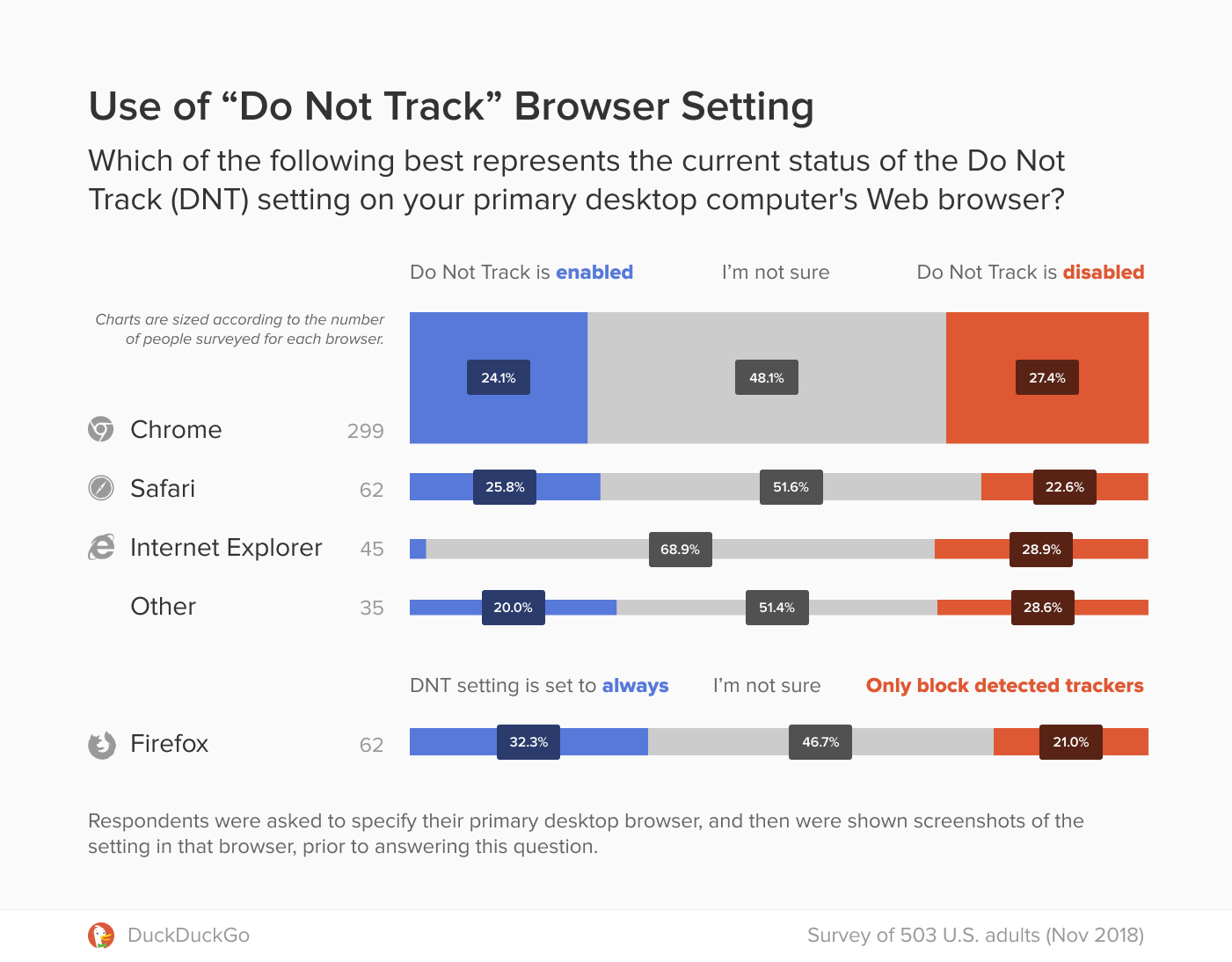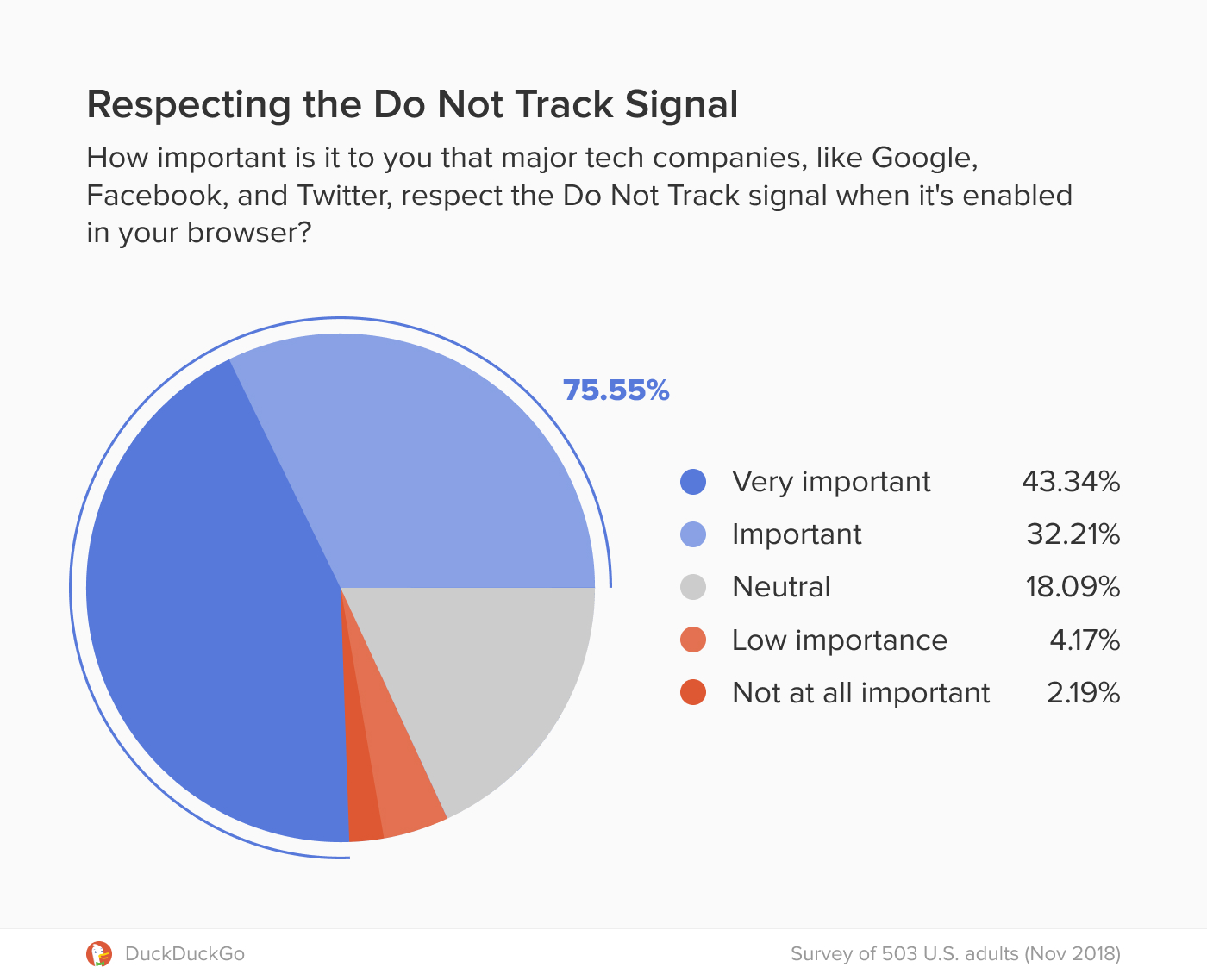DuckDuckGo cautions internet users that companies like Google, Facebook, and Twitter, do not respect the “Do Not Track” setting on web browsers.
According to DuckDuckGo’s research, over 77% of US adults are not aware of that fact.
The “Do Not Track” (DNT) setting on browsers sends signals to web services to stop tracking a user’s activity.
However, the DNT setting is only a voluntary signal which websites are not obligated to respect.
“It can be alarming to realize that Do Not Track is about as foolproof as putting a sign on your front lawn that says “Please, don’t look into my house” while all of your blinds remain open.”
In a survey conducted by DuckDuckGo of 503 US adults in Nov 2018, 23.1% of respondents have consciously enabled the DNT setting on their desktop browsers.

Among those who have consciously enabled DNT in their browser, 41.4% didn’t know that it only sends a voluntary signal.
After being informed of the limitation of the DNT setting, 75.5% of US adults say it’s “important” or “very important” that companies respect the setting when it is enabled.

DuckDuckGo argues that the DNT setting is inherently misleading, and there’s a huge discrepancy between the name of the setting and what it actually does.
The company even goes as far as to call on the federal government to introduce regulation requiring web services to respect the DNT setting.
DuckDuckGo’s survey results indicate that 71.9% of US adults are in favor of federal regulation as well.
This marks the latest chapter of DuckDuckGo’s campaign to educate internet users about protecting their privacy online.
DuckDuckGo famously does not track people who use its search engine, and users can effectively block trackers elsewhere by using the company’s browser extension and mobile app.





